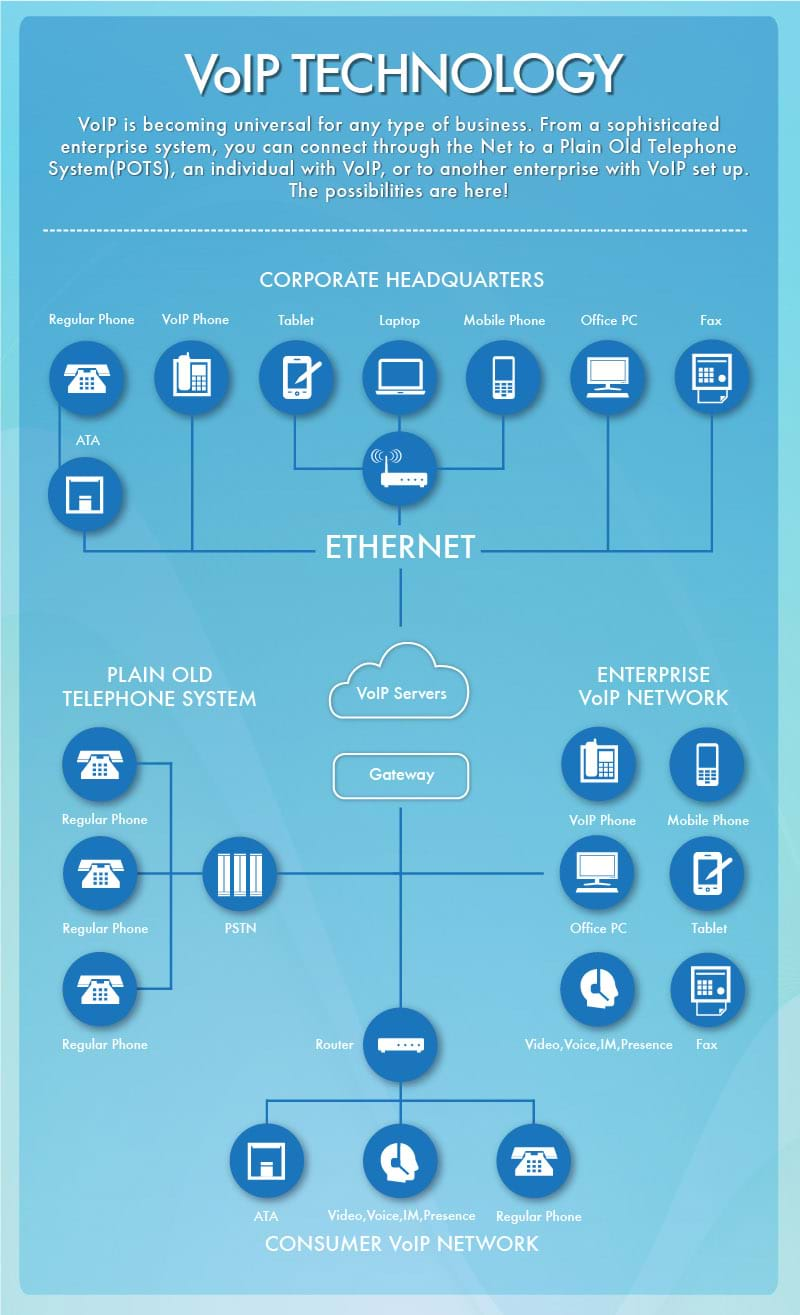Voice over IP

VoIP aka Voice over Internet Protocol
VoIP has been gaining popularity for the past 10 years. Using the internet for voice means packetizing calls into data packets to be sent over the internet. The emerging market allows customers the flexibility of sharing one network for both voice and data or keeping it separate. Business phone systems have been designed to use the internet for routing calls while still offering the features of a traditional PBX.

Additional Features on VoIP
Unified Communications is another buzz word heard all of the time in the telecommunications industry. The fact is if you have a smart phone and are using it to share your family calendar with your husband/wife/partner you are using unified communication. Now your phone system can also do the same for your office phone, voice messages, email, contacts, online meetings, and more.
Network and save on long distance calls
One of the highlights of Voice over IP is the ability to network offices together allowing employees to dial their extension no matter which location they are in. This means what used to be a Long Distance call from the New York office to the Illinois office is internally dialing as if they were sitting next to you in New York. No LD charges!
To add to the savings, team members who travel can use their cell phone like their desk phone too. Apps can be used to make calls using your mobile phone to connect with your office and dial from there. Making any networked office a hub for local calling.
Redundancy
With a traditional PBX, if it fails for any reason your vendor may have a backup to upload after repair, but it will be down until then.
VoIP offers the opportunity for true redundancy just like your data network. In fact, this can be set to happen automatically if a problem were to occur.
Infographics
- Learn More About VoIP
- Growth of SIP and VoIP
- Cloud Phone System vs Onsite Phone System
- Optimize Customer Service with Unified Communications
Read our articles about VoIP phone service for business and how you can add features to your phone system.